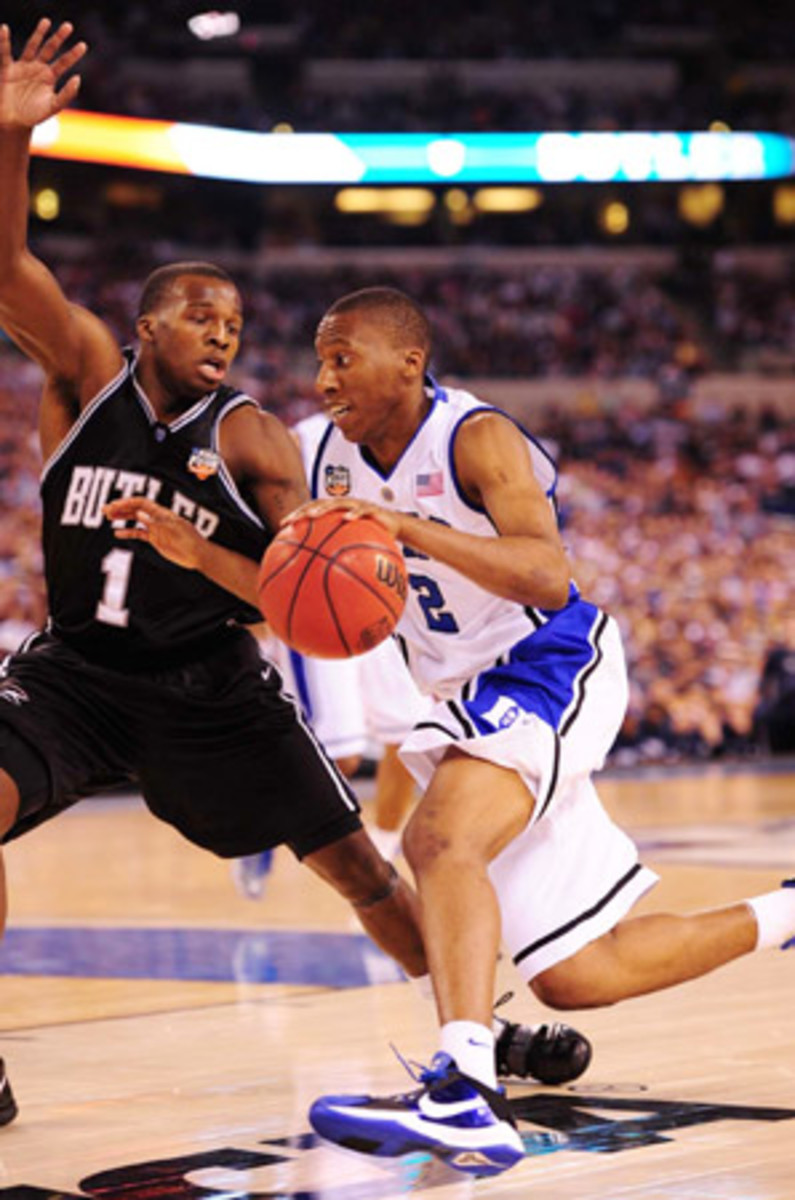
NCAA tourney expansion is about money; what's wrong with that?
I want to know where the cave is. You know, that remote location deep in the ground, the X on the map where the NCAA greed-meisters will stash the gold bars they'll buy when a new TV deal is finalized for the expanded men's basketball tournament. My guess is Montana.
I ask Greg Shaheen. Shaheen works for the NCAA. He has a very long, very bureaucratic title which we will skip here. Essentially, he oversees the tournament and is charged with adding to the cash pile it gets from selling its television rights. If anyone would know where the treasure will be buried, it's Shaheen. Like they always told me in journalism class: Follow the dollar.
Shaheen took offense at my suggestion. The swag won't end up in a cave, he said. Far too bourgeois. "Swiss bank accounts. Numbered,'' Shaheen said. And you thought NCAA types had no senses of humor.
Here's what I don't understand. Here's what had me tossing my laptop across my hotel room in Indianapolis last week, every time I read something that included the words "NCAA'' and "greed'' in the same sentence.
The NCAA is likely to expand the tournament, probably to 96 teams. The NCAA is doing this to make more money. Or, as Shaheen put it to me Wednesday, "to leverage the best possible agreement for the Association (and) to grow and diversify the revenue stream.''
For some reason, the NCAA's desire to make more money is absolutely shocking and distasteful to many media types. They've decided the NCAA is a greedy, money-grabbing/grubbing monolith. The NCAA wants to cash in on the popularity of its product. Oh, the horror.
Let's start with this: It's a business. In business making money is a good thing. We want businesses to make money. If they don't, they shut down, unless they are the federal government. The NCAA has a supply of 64 teams. Given the current demand, it's thinking of increasing that supply by 32. It doesn't know yet what the demand for that might be. It intends to find out.
This is wrong, apparently.
We like 64 teams. Some of us liked typewriters, too, and VCRs. I like 64 teams. They fit perfectly on an 8 1/2-by-11 sheet of copy paper. Ninety-six would be hell on office pools. Contrary to popular propaganda perpetrated mostly by coaches, there aren't 96 teams worthy of admission to the March club. Arguments that include any mention of "diversity'' or "the experience'' should be ignored. This isn't tee ball.
I think that the NCAA is a hypocritical organization that unfairly favors its big football schools. Some of the arguments in defense of a 96-team basketball field are specious at best. But not the greed argument.
The numbers say that 96 percent of the NCAA's revenues are returned directly to college students who play sports. The men's tournament accounts for more than 90 percent of all the revenues generated. In other words, if your kid has a full ride, a partial ride or is just along for the ride as a walk-on, thank the money raised by March Madness.
The NCAA runs 88 championships and has more than 400,000 undergrads playing sports at 750 sites. I'm not sure where we expect the money to come from to manage all that. Bake sales, maybe. Bingo nights.
If one sport is saved at one school, if one kid gets some money to play a sport while (hopefully, theoretically) attending school, because the NCAA can match its supply with an increasing demand, what's so greedy about that?
You can knock the NCAA's attempts at making this a benevolent enterprise, in support of "student-athletes'' who don't always graduate, or ever intend to. But to decry the business aspect is a little naïve.
Says Shaheen, "The point is, it isn't about the money raised. It's about what's done with the money. That's why our goal has been to grow and diversify the revenue stream. If you call us greedy, you clearly don't understand what we do with the money. That's why we have that new wave of PSAs. Look: Here's where the money goes.''
And the obvious, elephant-in-the-room question: If the NCAA is stuck on greed, why isn't there a football playoff? Think of the shekels that would be loosed for eight teams, playing off. They'd need two caves and an island.
"If I had the authority, I'd address that,'' Shaheen says. In the meantime, he had a plane to catch, to Houston. Or maybe it was Montana.





